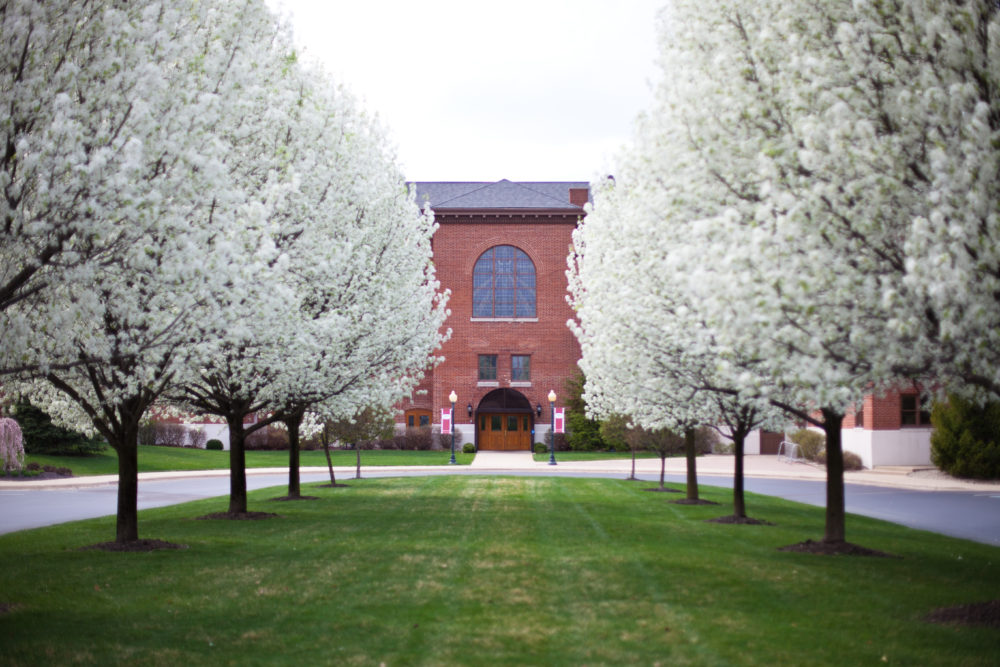February 17, 2021
The Value of Theological Education for Women in the Church
Written By Grace Theological Seminary
Tagged With Master of Arts Dr. Christy Hill Women's Leadership

Human beings are created in the image of God, “male and female, He created them” (Gen. 1:27). Women are a part of God’s design to create a representative steward on earth to carry out His work in His way. Imaging God requires a deep and dependent relationship with our Creator. Imaging God was always our Creator’s primary vision for humankind, for we were designed to be image-bearers to the rest of His created world. By Genesis 3, the ability to image God without some mediation was broken down, for Adam and Eve severed their oneness with God. The disastrous effects are still felt to this day. Without God’s intervention, women all over the world find their identity in a multitude of finite things other than God and are impeded from living out their created purpose as image-bearers.
When men and women are restored to be in right relationship with our Creator God through Christ, we are put back into the flow of the original intent of why we were created. Men and women in the church can now, theoretically, live out their purpose in imaging God. But the restoration does not happen without gaining knowledge and relational understanding of the Person after whom we were designed. While justification happens in a moment’s time, sanctification happens over a lifetime. The call to every female believer is to grow in her knowledge of God and to become mature and complete in her faith journey. In this way, growth is measured by one’s ability to more fully image God.
Theological education, especially one that is guided and curated in a formal way through seminary training, is an excellent way for women in the church to grow in their ability to image God. In seminary, women learn about God in relational and rigorous ways. Learning is relational when women are challenged to reflect on their beliefs, many of which are not consciously held or articulated, and they are taught how to “take every thought captive to obey Christ” (2 Cor. 10:5, ESV). Learning is rigorous as women in the church gain the ability to think upon their deeply ingrained beliefs and to examine them in light of Scripture. This process is like that of the early Bereans who were noble-minded, for they “received the word with all eagerness, examining the Scriptures daily to see if these things were so” (Acts 17:11, ESV). The process of growing in the Lord and being able to image Him more accurately requires careful study of the Word of God and careful examination of one’s life. If we are not relational and rigorous in our study of the Scriptures, we will image the god of our imagination instead of the God of the Bible.
Women in the church are uniquely designed and called to mentor other women in the faith so that we might bear the fruit of imaging God in the world. Titus 2:3-5 shows a model for women mentoring women. “Older women likewise are to be reverent in behavior, not slanderers or slaves to much wine. They are to teach what is good, and so train the young women to love their husbands and children, to be self-controlled, pure, working at home, kind, and submissive to their own husbands, that the word of God may not be reviled (ESV).” Mature Christian women have a unique voice to teach younger women in the faith about how to image God as female image-bearers.
While there are a variety of ways a woman might develop her teaching and mentoring skills, one very specialized way is to undertake a formal degree that combines theological reflection with practical ministry skills. One of our recent graduates testifies to the value of her theological education: “While I understood a distinct call to ministry, I was unclear what God wanted me to do, other than becoming more equipped to serve Him. Theological training prepared me from multiple perspectives. It deepened my biblical knowledge, developed specific ministry skills, and provided a platform for me to defend my understanding, all while encouraging others in theirs. This biblical ministry training prepared me to effectively impact young women while sharing my life and passion for Christ. Even as God continues to develop my ministry roles, the connections I’ve made through Grace provide ongoing fellowship, encouragement, and support with other women in the church who also serve in ministry.”
Another graduate, Kimberly Baldwin, is a current missionary in Eastern Europe who sees the ramifications of a society that has lived for years in spiritual darkness. She speaks of the importance of following the Great Commission in its entirety. “We are called to do more than “tell;” we are called to “teach.” How can we faithfully teach others if we have not been taught? How can I encourage female Christians to engage in theology when I have not engaged myself? Grace College’s MA degree in Women’s Leadership Studies stretched and challenged my own commitment to understanding the Scriptures and shaped my ability to articulate the truth. It has provided the confidence needed to teach and share, yet it has also provided the humility of knowing that I still have so much more to learn. Completing the MA degree has allowed me to encourage the next generation of students with the value of knowing Christ on a deeper level,” she said.
Women were designed to be image-bearers of God. Imaging God is our highest purpose in life. Sharpening how we know, love, and represent God in the world is the task of Grace Theological Seminary.
Are you passionate about women mentoring women? Learn more about our MA in Women’s Ministry Leadership or our M.Div in Women’s Leadership.
Christy Hill
Christy Hill, Professor of Spiritual Formation and Women’s Ministries, has a passion for facilitating the holistic development of men and women into mature disciples of Jesus Christ, who are transformed by the experience of God’s love and truth. Saddened by the discrepancy between accurate theology and a living faith, she seeks to help her learners acknowledge that their operant belief system (behaviors, values, attitudes, motives) reveals their true beliefs. She then seeks to aid spiritual formation by resolving the gap between one’s professed belief system (correct theology) and actual beliefs.
Share
Tagged With Master of Arts Dr. Christy Hill Women's Leadership



